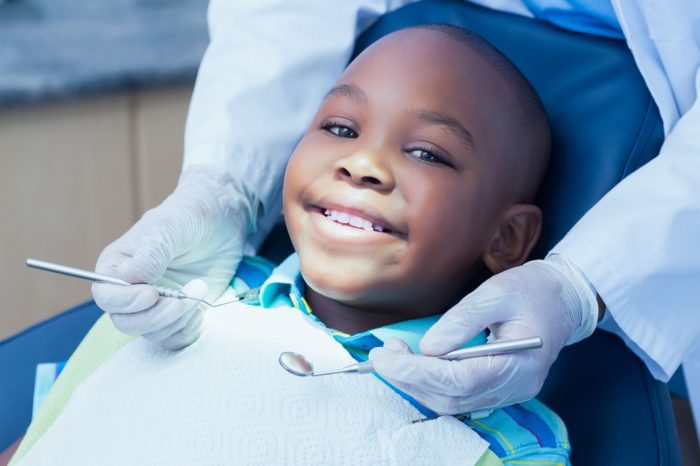The American Academy of Pediatrics recently released an update to their children’s oral health recommendations. This list features advice for parents and guardians to promote healthy smiles for their kids.
A pediatrician specializes in the health and welfare of their patients under the age of 18. In their comprehensive care, they also seek to encourage the good health of their patients’ teeth and gums. Though this advice is useful, you should also speak to your child’s dentist for details about the oral health care that they need. You can read on to find takeaways from this recent update, including tips for lowering your child’s risk of dental problems.

Dental Tips from Your Child’s Doctor
Begin Regular Dentist Visits Early
Dentists and pediatricians agree that you should take your child to the dentist when their first baby (primary) teeth begin bursting through the gums and growing into place. Usually, this begins around the age of six months. But some infants do not start to grow teeth until after 12 months. Or they do before four months of age.
However, this new update from AAP specifies that you should bring your child to the dentist’s office by age one. This early attention to a child’s teeth ensures that an expert can evaluate their oral development, checking that it progresses without issue.
It will also initiate good oral habits of attending regular dental check-ups at this early age, encouraging them to continue as they grow up. Even if the child does not have teeth growing by their first birthday, you should take them to the dentist anyway for this oral health care.
Drink Tap Water Between Meals
Hydration will bring many wellness benefits. But drinking tap water specifically throughout the day will help to improve dental health in children. Tap water contains fluoride, a naturally occurring mineral that absorbs into tooth enamel to strengthen the teeth.
The teeth then have fortification to better resist dental problems like cavities as well as surface stains. So long-term, they can see healthier smiles. Bottled water does not have this adequate amount of fluoride, so patients who drink it will not see these preventative dental benefits.
Limit Juice Consumption
Fruit juices are a popular drink among young children due to their sweet flavor. Parents and guardians may appreciate nutrients that come with real fruit juice too. But in abundance, juice could pose a threat to a child’s dental health.
Citrus fruits contain high amounts of acid, which can linger in the mouth and eat away at the teeth. Young dental patients can have especially vulnerable teeth as they develop, so they can see a great deal of dental damage from drinking this type of juice.
Many juices also contain added sugar, and sugar becomes acidic when it reacts with saliva. So sugary drinks will pose this same risk to a patient’s oral health. Consult with your child’s doctor or dentist to learn how much juice your child can safely consume according to their age bracket.
